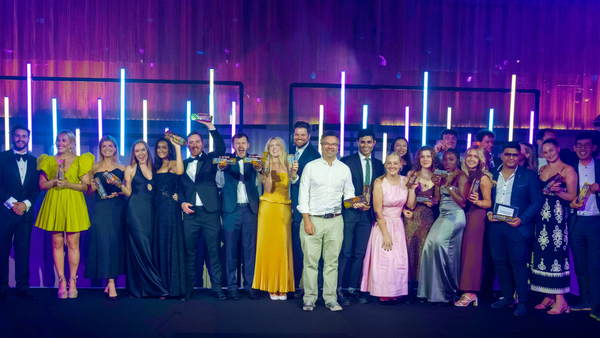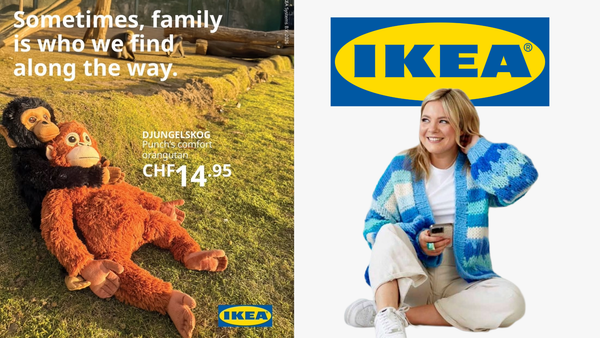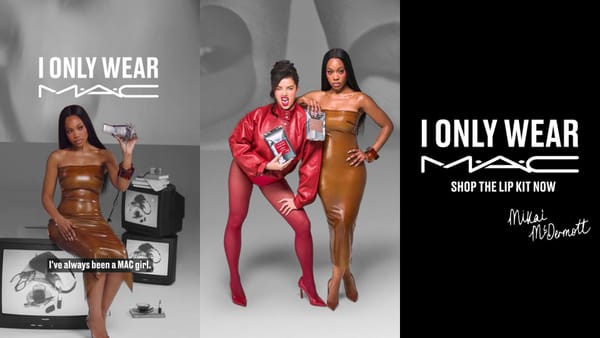Clubhouse is an audio-only app hosting virtual rooms for live discussions, with opportunities for users to listen in and participate by speaking themselves. When it launched, Clubhouse was only available to iOS users via invite. The app is still invite only, however as of this week, is available to Android users too.
The desire for exclusivity that Clubhouse presented upon it’s launch attracted millions of users during its beta stage. But after peaking in February with 9.6 million downloads, in March there were just 2.7 million downloads, dropping even more to 900,000 downloads in April – according to mobile-app-store analysts Sensor Tower. This drop in downloads could be attributed to the fact that Clubhouse now has a multitude of competitors.
The unique concept of the app was extremely attractive to users, and app developers caught onto this – it makes sense, as with the rise of TikTok we saw the introduction of Instagram Reels. If consumers love a concept, why not jump on board?
Twitter Spaces
Last week, Twitter officially launched its own audio-only feature ‘Spaces’. Although Spaces isn’t invite only, it is only available to users with over 600 followers. Clubhouse’s usership in the 10-15 million user range is impressive for a young app, however, what Twitter has is it’s existing usership of around 350 million, meaning this exciting reach can be maximised.
Users who have tuned into audio rooms and both Clubhouse and Twitter Spaces have reported that so far, Twitter Spaces feels more organic and authentic. Reporting that lots of the conversations hosted on Clubhouse promote ‘the hustle’, get-rich-quick kind of attitude.
Of course this sort of content works for some people, especially the likes of the elite members of Clubhouse such as Mark Zuckerberg and Elon Musk. However, for those who want to engage in relatable conversations, Twitter Spaces may be the place for them.
One thing that Twitter Spaces is currently missing that Clubhouse have really taken a dive into is creator monetisation. Clubhouse is already providing funding to a number of its creators, allowing them to elevate their income through hosting conversations. The query of monetisation for Twitter rooms has however been raised, suggesting that soon users will be able to charge for admission into audio chat rooms.
Facebook Audio Rooms
Despite Mark Zuckerburg being a known Clubhouse user, it appears that he hasn’t missed a trick as Facebook has begun testing a new web-based app concept called ‘Hotline’. Similar to Clubhouse, Hotline will let hosts chat to their audience via audio, but will also include the addition of a text chat feature.
Over the next few months, Facebook will begin to roll out its new audio features to selected users. It has not yet been confirmed that everyone on Facebook will be able to use the Live Audio rooms and Soundbites features or whether it will be a feature exclusive to creators with large followings.
Staying in line with Clubhouse, acting as a direct competitor, it has been confirmed that creators who use Facebook audio features will have the opportunity to be monetised. However, unlike Clubhouse, Facebook hasn’t provided any information about how chat rooms will be moderated to ensure creators and audiences feel comfortable and well informed when consuming audio content.
Stereo App
Stereo is arguably the most similar to Clubhouse as a competitor. Twitter Spaces and Facebook Audio Rooms are features produced by already established big tech platforms, whereas Stereo, like Clubhouse, is an app in its own right. You can follow creators, tune in to audio rooms and also raise a hand to share your own soundbites within a conversation.
A selling point of Stereo which is something that isn’t available on Clubhouse is the ability to save conversations for users to listen back to at a later date, which is helpful if you miss the beginning of a conversation or have to leave before the end. At present, if you miss the beginning or end of a conversation on Clubhouse, users are unable to listen again.
Clubhouse attracted millions of users with its exclusive appeal that left consumers desperate to receive an invite to mingle with famous faces – or voices. Users do not need an invite to join Stereo, it is quick and easy to download for free for users on iOS and Android – and influencers are encouraging social media users to do so.
Stereo has embarked on a huge influencer marketing campaign, collaborating with influencers such as Callux, a British creator with an audience of 3.76 million subscribers, and Tobi Brown , a member of the ‘Sidemen’ who received over 1.2 million views on his sponsored video with Stereo.
Each of these audio platforms and audio features have many similarities, but also different unique selling points that will be attractive to a range of audiences. When all of these audio features are officially launched and well established, it will be interesting to discover which one becomes the most popular, and whether Clubhouse will remain at the top of the live audio market.









